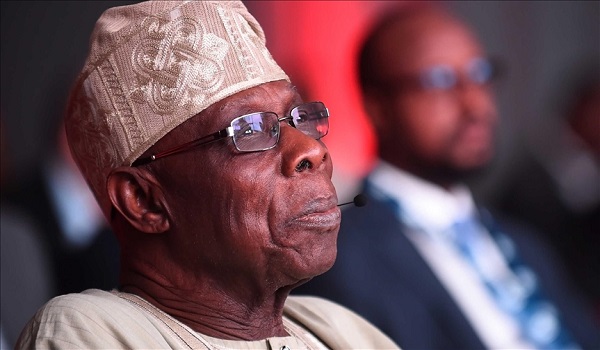Former President Olusegun Obasanjo has said that while the subsidy removal and exchange rate policies introduced by President Bola Ahmed Tinubu's administration were necessary for the economy, their poor implementation has hurt both the economy and Nigerians. Speaking at the Paul Aje Colloquium in Abuja over the weekend, Obasanjo highlighted the adverse impacts of these policies and proposed a comprehensive 25-year development agenda to address the nation's economic challenges.
Obasanjo remarked, “Today, the government has taken three decisions, two of which are necessary but wrongly implemented and have led to the impoverishment of the economy and Nigerians. These are the removal of subsidy, closing the gap between black market and official rates of exchange, and dealing with the military coup in Niger Republic.”
He emphasized the need for production and productivity, stating that trust in government leadership is crucial for economic progress. He noted, “An economy does not obey orders, not even military orders. If we get it right, in two years, we will begin to see the light beyond the tunnel. It requires a change of characteristics, attributes, and attitude by the leadership at all levels to gain the confidence and trust of investors who have alternatives.”
Obasanjo pointed out that Total Energy opted to invest $6 billion in Angola instead of Nigeria, indicating a loss of confidence in Nigeria's investment climate. “If the existing investors are disinvesting and going out of our country, how do we persuade new investors to rush in? We need to change from transactional leadership in government to transformational and genuine servant-leadership,” he said.
He also criticized those who opposed his stance on the refurbished Port Harcourt Refinery in Rivers State, describing them as “sycophants and spin doctors.” Obasanjo recalled that the attempt to partly privatize the refineries in 2007 was made under his administration after a thorough study of the situation, indicating his informed perspective on the issue.
To navigate out of the current economic crisis, Obasanjo recommended a 25-year socio-economic development plan, emphasizing that long-term strategic planning is essential for sustainable progress.





One thought on “Obasanjo Criticizes Implementation of Tinubu’s Economic Policies, Suggests 25-Year Development Plan”